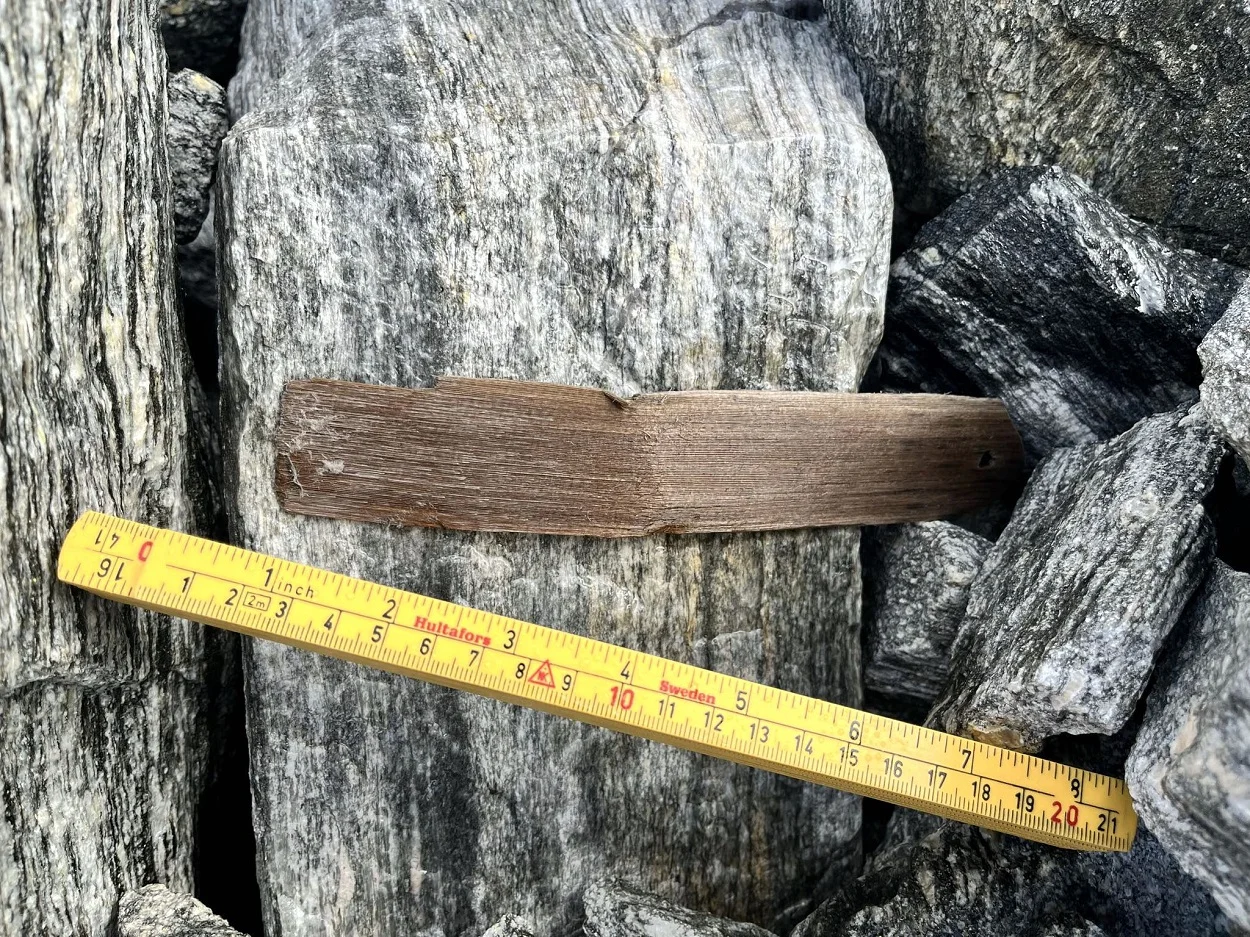“Secrets of the Ice” is a glacier archaeology program, dedicated to studying glacial ice patches which contain preserved artefacts and organic objects.
As part of the 2024 season, archaeologists are conducting surveys in Breheimen National Park, situated in Norway’s Innlandet and Vestland counties.
In a press statement shared on social media, the team announced the discovery of a complete scaring stick flag, along with another broken example, both of which have been preserved in the ice for approximately 1,500 years.
Ancient hunters used the flags by attaching them to scaring sticks, which were placed in lines to guide herds of reindeer for hunting.
Reindeer are highly sensitive animals and tend to avoid human-like silhouettes or moving objects, so the sticks would serve as a moving barrier and steer the reindeer to hunters lying in wait.
According to the researchers, the example from Breheimen National Park “has distinct parallel lines along its length, which are actually year rings from the radially split pine used to make it.”
This is the second significant find of 2024, following the discovery of a Viking-era arrowhead amid rubble and ice in the Jotunheimen Mountains. The arrowhead was uncovered during a preliminary survey of an ice site, which the researchers identified using aerial photographs, satellite imagery, and digital terrain models of the mountains and ice fields.
In previous years, the project has uncovered a variety of hunting-related objects, as well as domestic items such as a woven Viking mitten, a 3,400-year-old hide shoe, and complete tunics from the Iron Age.
Header Image Credit : Secrets Of The Ice
Sources : Secrets Of The Ice





